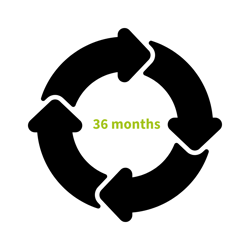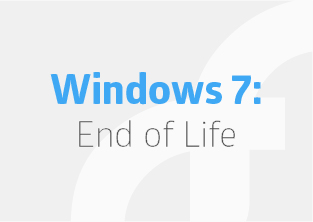Advantages of Windows 10
- Speed: Windows 10 is much faster to use than previous versions of Windows. There is also a fast start-up feature, meaning you can get to work straight away.
- Newer, easy to use applications: now scale and adjust as you increase and decrease the window size making multitasking much easier.
- Advanced security/protection: improvements in data protection using sophisticated technology. You can safely move your data between devices (PC's, tablets, mobiles, etc.), email, and the cloud with confidence that your business data is protected at all times. You can also now sign in securely with your face or fingerprint (requires hardware capability).
- OneDrive syncing: making it easier to take advantage of cloud storage.
- Easy to use/reduced complexity: providing an all-round better user experience. Businesses can now personalise their systems to suit the way they work.
- Improved search bar: making it easier to find your documents and files quickly by simply clicking the magnifying glass.
- Cortana: Microsoft's 'personal digital assistant' which can be activated by voice.
- Touchscreen capability: which might not be your preferred method at first, but will quickly seem quite handy! (requires hardware capability).
- Nearby sharing: send files and documents directly to nearby PC's using Bluetooth or Wi-Fi.
Why use Reality Finance for your Windows 10 upgrade?
Reality Finance can provide a bespoke arrangement for business users through our Total IT Finance solution for hardware, software, services, and support costs. This means everything from your initial consultation to your order, installation and training can be included within your agreement, so you can concentrate on business as usual.
If you’ve not yet considered Windows 10 for your business, you need to act fast. Get in touch with Reality Finance to discuss your individual business requirements and put a plan in place. We can provide an affordable monthly payment plan which covers all costs involved in the upgrade, without incurring an up-front cost.
Windows 10 customer upgrade example
Reality Finance has already helped many customers in multiple sectors upgrade their hardware and/or software to Windows 10. A recent example of where Reality Finance has assisted with a full customer upgrade was for a holding group for several Care Homes in the UK. The business needed to upgrade to Windows 10 to ensure the systems could continue to run smoothly and be compliant with other systems in place. They decided to upgrade their hardware at the same time, opting for laptops so that the management team was able to be mobile across the businesses instead of the traditional desktop PCs. An affordable three-year finance agreement was put in place, and the new laptops and peripherals were delivered straight to the customer. The business is now able to work remotely and securely.
Why choose Reality Finance?
We are a top Asset Finance Provider, demonstrated by our consistent 5* Feefo ratings.
We provide Asset Finance within the UK for all types of businesses, from start-ups and small businesses through to large companies.
We are more than just a Broker, we are a principal lender in our own right; meaning additional flexibility in your funding options.
We know Asset Finance requirements inside out, so after a quick discussion with you, we can determine what funding types your business is eligible for, and which of our lender's may be able to offer the best rates for you.
We explain your Asset Finance options and work with you to find the best funding solution for your business.
We are on hand to answer any questions you may have regarding the process.
We provide quick Asset Finance, with most funding decisions made within 24 hours.
We can also provide Asset Finance for your customers if you are a vendor, manufacturer or distributor.
Would you like to find out more?
Give us a call on 01483 413859 and speak to one of our lovely team.
Or alternatively you could fill in our callback request form and one of our Brokers will call you directly to discuss your requirements.








